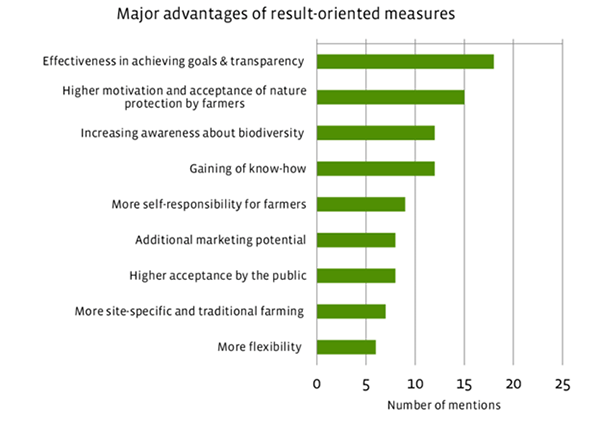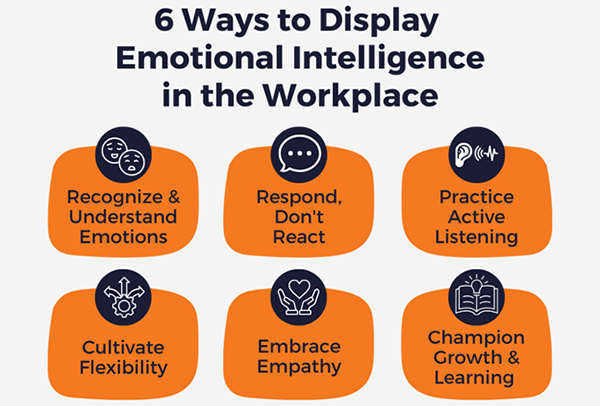8 Essential Remote Skills
Every Hiring Manager Notices
See also: Building and Maintaining Remote Relationships
More than 80% of U.S. employers now prioritize skills over degrees. The same applies to demonstrating your remote working skills.
Why?
Because, within five minutes of your first remote interview, hiring managers know.
They can spot the difference between candidates who say they work remotely and those who actually excel at it.
In this guide, you will learn the exact skills hiring managers watch for, how to demonstrate each one convincingly, and what transforms you from just another applicant into the remote worker every team wants.
What Remote Hiring Managers Really Notice
-
Digital Communication Mastery
Remote work flipped traditional workplace communication on its head. In offices, you could clarify confusion with a quick desk visit. Remote teams depend entirely on digital messages to function.
Hiring managers scrutinize every word in your application materials. Your email becomes your handshake. Your Slack message reveals your professionalism. Your video call introduction showcases your presence.
The difference between good and exceptional:
Good communicators write clear messages
Exceptional communicators adapt their style to different platforms and audiences
Good communicators respond promptly
Exceptional communicators know when asynchronous beats real-time
Companies with strong communication practices are 3.5 times more likely to outperform their peers. Poor communication costs businesses an average of $12,506 per employee annually.
How to demonstrate this skill immediately:
Your application email reveals everything. Hiring managers notice:
Subject lines that communicate value instantly
Opening paragraphs that respect their time
Specific examples instead of vague claims
Appropriate length for the message type
Zero typos or grammatical errors
For more strategies on perfecting your remote job applications, Remployee provides tailored resources that simplify the hiring process for freelancers and remote workers.
-
Self-Management and Accountability
Traditional offices provided built-in accountability. Your manager could see you working. Colleagues noticed your contributions. Physical presence signaled productivity.
Remote work destroys these visual cues. Hiring managers need evidence that you will actually work when nobody is watching.
What self-management really means:
Setting your own deadlines and meeting them
Prioritizing tasks without constant direction
Asking for help before problems escalate
Creating structure when none exists
Tracking your own progress and results
During interviews, strong candidates reference specific systems they use. They mention how they organize their day, track deliverables, and maintain focus. Weak candidates talk about flexibility and freedom without addressing accountability.
The red flags hiring managers watch for:
Questions that signal poor self-management:
"What are the working hours?" (instead of asking about core collaboration times)
"How closely will I be supervised?" (suggests need for external motivation)
"Can I work from anywhere?" (without mentioning time zones or availability)
"What happens if I miss a deadline?" (assumes failure rather than ownership)
The best candidates flip these concerns by explaining their processes upfront. They describe their project management methods. They share how they communicate progress. They detail their backup plans for technical issues.
-
Technical Fluency Across Multiple Platforms
Remote work happens through screens. Every interaction requires technological competence. Hiring managers assume you can handle basic video calls and email. They're watching for evidence of genuine digital fluency.
The minimum baseline:
Navigate video conferencing without technical drama
Share screens and documents seamlessly
Troubleshoot basic connectivity issues independently
Adapt quickly to new collaboration tools
Understand security best practices for remote work
What sets candidates apart:
Familiarity with project management platforms
Experience with async communication tools
Knowledge of time tracking or productivity software
Understanding of cloud storage and file sharing
Ability to learn new tools rapidly
The five-minute tech test:
Many hiring managers conduct informal technical assessments during the first interview. They are observing:
Can you join the call without assistance?
Does your audio and video quality suggest proper equipment?
Can you screen share when asked?
Do you know basic features like chat, mute, and camera control?
Can you handle technical hiccups gracefully?
One candidate lost a job offer after fumbling with screen sharing for ten minutes during a final interview. Another impressed the hiring team by quickly switching to a backup internet connection when their primary service dropped.
-
Proactive Problem-Solving Without Hand-Holding
Office environments enabled constant quick questions. Stuck on something? Walk to a colleague's desk. Need clarification? Pop into your manager's office.
Remote work introduces friction into every interaction. Scheduling a call for a two-minute question wastes everyone's time. Hiring managers prize candidates who exhaust other resources before escalating.
The decision tree hiring managers want to see:
Search existing documentation first
Check previous conversations or project archives
Research online if it's a technical question
Consult with peers if it's not urgent
Schedule formal discussions for complex issues
What proactive problem-solving looks like in practice: proactive problem-solving in a remote role often means:
Identifying potential issues before they become problems
Researching solutions before asking for help
Coming to meetings with options, not just questions
Documenting solutions for future reference
Taking initiative on undefined projects
During interviews, smart candidates share specific examples: "I noticed our reporting process took three hours weekly. I researched automation tools, tested two options, created a prototype, and presented it to my manager. We implemented it and saved twelve hours monthly."
-
Results-Oriented Mindset Over Activity

Traditional workplaces often measured success by visibility. Who arrives early? Who stays late? Who's always in meetings? Remote work exposes the fallacy of equating activity with productivity.
Hiring managers need people who deliver results, not people who appear busy. They're listening for evidence that you measure success by outcomes rather than effort.
The average office worker is productive for only 2 hours and 53 minutes during an 8-hour day. Remote work can actually increase productivity when employees focus on results instead of presenteeism.
How exceptional candidates frame their experience:
Weak: "I managed social media accounts and posted regularly."
Strong: "I increased engagement by 47% over six months by implementing a content calendar based on audience analytics. We went from 12,000 to 23,000 followers while cutting posting frequency by 30%."
Weak: "I handled customer service inquiries."
Strong: "I resolved an average of 45 support tickets daily while maintaining a 96% satisfaction rating. I created a knowledge base that reduced repeat inquiries by 22%."
The questions that reveal your mindset:
Hiring managers ask behavioral questions designed to expose how you think about work:
"Tell me about a project you're proud of." (Do you describe activities or results?)
"How do you measure success?" (Do you mention outcomes or effort?)
"What's your typical workday like?" (Do you focus on tasks completed or hours logged?)
The best answers always connect activities to measurable outcomes. They quantify impact whenever possible. They demonstrate understanding of business objectives beyond personal tasks.
-
Emotional Intelligence in Digital Environments

Body language disappears in text messages. Tone gets lost in emails. Context vanishes in brief chat exchanges. Remote work demands heightened emotional intelligence to navigate relationships across digital channels.
Hiring managers evaluate your ability to:
Interpret messages accurately without overreacting
Recognize when someone's struggling without explicit statements
Build rapport through screens and text
Handle conflict constructively without face-to-face interaction
Create psychological safety on distributed teams
What this looks like in interviews:
Strong candidates acknowledge the challenges of remote communication. They share examples of misunderstandings they've navigated. They describe how they build trust with colleagues they've never met in person.
Weak candidates either ignore these challenges or dismiss them as minor. They assume remote relationships are just like in-person ones. They lack awareness of how digital communication changes human dynamics.
The subtle signals hiring managers notice:
During video interviews, emotional intelligence shows through:
How you react to unexpected questions
Whether you pick up on interviewer cues
Your ability to build conversational flow remotely
How you handle technical difficulties or interruptions
Your awareness of time and others' schedules
Power User Tip: Practice having meaningful conversations over video with friends or family. Record yourself. Watch for moments where you miss social cues or fail to create connection. Remote emotional intelligence is a learnable skill.
-
Adaptability and Continuous Learning
Remote work environments change constantly. New tools emerge. Processes evolve. Team structures shift. Projects pivot. Hiring managers need people who adapt rather than resist.
The candidates who stand out embrace change as opportunity. They learn new systems quickly. They adjust their workflows when needed. They stay curious about better ways to work.
Evidence of adaptability in action:
Learning new software independently when requirements change
Adjusting communication styles for different team members
Shifting priorities smoothly when business needs evolve
Experimenting with productivity methods to improve results
Staying current with industry trends and best practices
How to prove you're adaptable:
During interviews, share specific transition stories. Describe how you moved from in-office to remote. Explain how you mastered new tools. Detail how you adjusted when projects changed direction mid-stream.
The framework that works:
Describe the change or challenge
Explain your initial response
Detail what you learned or how you adapted
Share the positive outcome
Connect to future scenarios
Example: "When my company switched from Asana to Monday.com, I spent my first weekend building our team's new workspace. I watched tutorial videos, tested different views, and created templates. By Monday morning, I had documentation ready for the team. We were fully operational in three days instead of the estimated two weeks."
-
Strategic AI Integration Without Losing Human Value
Remote hiring managers now expect candidates to use AI tools intelligently. The question changed from "Can you use AI?" to "Do you know when AI helps versus when it hurts?"
Companies are drowning in candidates who let ChatGPT write their cover letters verbatim. Hiring managers spot this instantly. The writing feels generic, disconnected, robotic. These applications get deleted immediately.
What separates smart AI users from lazy ones:
Using AI to accelerate research, not replace thinking
Editing AI outputs extensively to add personal voice
Knowing which tasks benefit from automation
Understanding AI limitations and biases
Combining AI efficiency with human judgment
The skills hiring managers actually value:
Prompt engineering for better AI outputs
Fact-checking AI-generated information
Using AI for data analysis and pattern recognition
Leveraging AI tools for productivity gains
Maintaining authenticity despite AI assistance
How this shows up in the hiring process:
Smart candidates mention AI naturally: "I used AI to analyze competitor websites and identify content gaps, then developed our unique positioning based on those insights."
Weak candidates either hide their AI use or over-rely on it. Their applications lack personality. Their interview answers sound rehearsed but shallow.
Pro Tip: Hiring managers test AI literacy by asking: "How do you use AI in your workflow?" Strong answers balance efficiency with critical thinking. They acknowledge AI's role without suggesting it does the actual work.
The remote workers who win aren't anti-AI or pro-AI. They're strategic about when and how they deploy these tools while keeping their human expertise front and center.
Wrapping Up
Remote work demands excellence in areas that traditional offices let slide. You cannot hide behind physical presence or office politics. Your work speaks entirely for itself.
The eight skills outlined here form the foundation of remote success. Master them and hiring managers notice immediately. Ignore them and your applications disappear into digital black holes.
These skills matter more than credentials, more than experience, more than connections. A candidate with three years of proven remote competency beats a candidate with fifteen years of traditional experience every single time.

About the Author
Ben Hadley challenges “the way it’s always been done.” A longtime critic of legacy hiring and surface-level remote perks, he now builds worker-first tools at Remployee - creating real opportunities for people tired of the gig economy’s empty promises.
